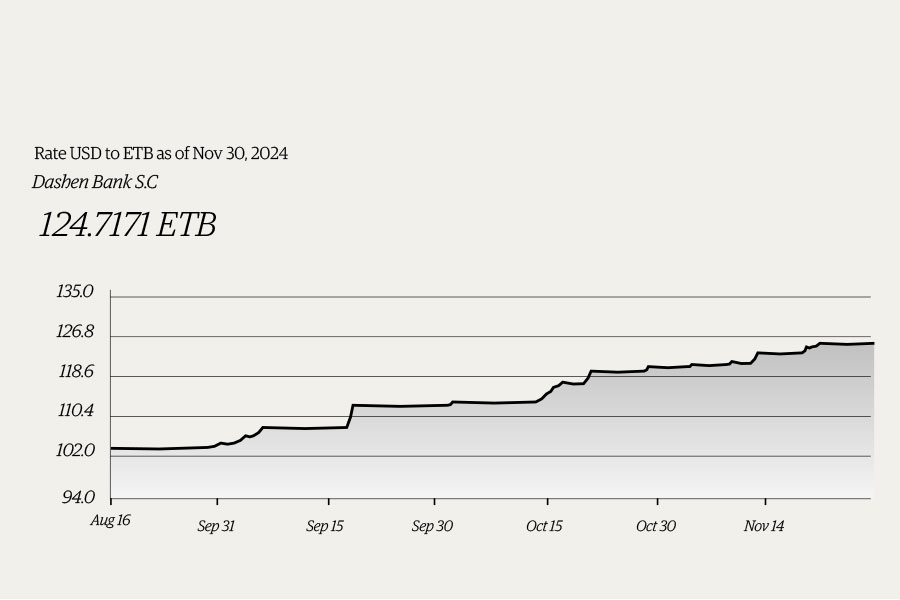
Commentaries | May 06,2023
Feb 3 , 2024
By Kenneth Rogoff
Despite analysts’ increasingly optimistic forecasts for the coming year, the risks to global growth are still tilted to the downside. Recent developments in China, Europe, and the United States suggest that the world economy’s biggest challenges may lie ahead, warns Kenneth Rogoff, professor of economics and public policy at Harvard University, in this commentary provided by Project Syndicate (PS).
A month into 2024, the consensus forecast for the global economy remains cautiously optimistic, with most central banks and analysts projecting either a soft landing or potentially no landing at all. Even my colleague Nouriel Roubini, famous for his bearish tilt, regards the worst-case scenarios as the least likely to materialise. The CEOs and policymakers I spoke to during last month’s World Economic Forum (WEF) in Davos echoed this sentiment.
That the global economy did not slip into recession in 2023, despite the sharp rise in interest rates, has left many experts upbeat about the outlook for 2024. When asked to explain their optimism, they either cited the US economy’s better-than-expected performance or predicted that artificial intelligence would catalyse a much-hoped-for productivity surge. As one finance minister remarked, “If you are not naturally optimistic, you should not be a finance minister.”
The world’s economists appear to share this outlook. The WEF’s Chief Economists Outlook for January 2024 found that while most respondents foresaw a mild global downturn in 2024, most were not overly concerned and viewed the expected slowdown as a healthy correction to the inflationary pressures caused by excessive demand. Even the disruption to global trade caused by Yemeni Houthi attacks against commercial ships in the Red Sea and the ongoing wars in Ukraine and Gaza have not dampened the jubilant mood of analysts and business leaders.
The US stock market is at record levels, and even the ordinarily conservative International Monetary Fund (IMF) revised its growth forecasts upward, with the latest World Economic Outlook describing the risks to global growth as “broadly balanced.” This characterisation marks a significant departure from the cautious tone the IMF typically uses to discourage finance ministers from engaging in unsustainable spending sprees.
In a crucial election year in which voters in dozens of countries – representing half the world’s population – will head to the polls, government spending is expected to surge. In macroeconomics, this phenomenon is known as the “political budget cycle": incumbent politicians want to stimulate the economy to improve their chances of being re-elected; they increase public spending and run larger deficits. Despite the relatively buoyant consensus, recent developments suggest that the risks to global growth are still tilted to the downside.
For starters, I am deeply sceptical of the Chinese government’s announcement that its economy would grow by 5.2pc in 2023.
GDP growth figures have long been a politically charged issue in China, particularly over the past year, as President Xi Jinping consolidated his one-man rule by sacking numerous top officials, including his defence and foreign ministers. With the Chinese economy grappling with deflation, falling property prices, and weak demand, it is increasingly evident that its economic woes are far from over – and that Xi is determined to control the narrative.
The combination of a prolonged economic slowdown and a collapsing real-estate sector could bring China to the brink of a Japan-style “lost decade.” The obvious Keynesian solution to the country’s slow-moving trainwreck of collapsing real-estate ventures and local government debt is to initiate direct cash transfers to households. But, given that Chinese consumers are more inclined to save (in contrast to their spendthrift American counterparts), and that government debt is already rising rapidly, a debt-deflation spiral seems increasingly likely.
Meanwhile, despite dodging a recession in 2023, European economic growth is widely expected to remain lacklustre this year. European countries’ persistent unwillingness to invest in their own defence suggests that former US President Donald Trump’s potential return to the White House in 2025 could necessitate a painful adjustment. Alarmingly, European leaders do not seem to be preparing for such a scenario, even as the war in Ukraine depletes their ammunition stockpiles faster than they can be replenished.
Europe is also grappling with the adverse economic effects of US President Joe Biden's Inflation Reduction Act (IRA), which uses tax incentives to lure European companies. While the IRA is ostensibly aimed at accelerating America’s green-energy transition, it is essentially a protectionist trade policy. It may have provided the US economy with a short-term boost, but its long-term consequences could mirror the 1930 Smoot-Hawley Tariff Act, which triggered an international trade war and exacerbated the Great Depression.
Nevertheless, Biden’s trade protectionism is mild compared to Trump’s plan to impose a 10pc tariff on virtually all imported goods, a move that could wreak havoc on the global trading system. European countries are understandably rooting for Biden, who – unlike Trump – has repeatedly reaffirmed his commitment to reining in Russian expansionism.
Alarmingly, both Democrats and Republicans in the US seem uninterested in cutting government spending, let alone reducing the deficit. Regardless of which party controls Congress after November’s election, a deficit-fueled spending spree is all but certain. But if real interest rates remain elevated, as many expect, the government could be forced to choose between deeply unpopular fiscal tightening or pressuring the Federal Reserve to allow another bout of inflation.
Despite the widespread belief that the global economy is headed for a soft landing, recent trends offer little cause for optimism. As the world confronts yet another turbulent year, policymakers and analysts need to bear in mind that a soft landing means little if the runway is in an earthquake zone.
PUBLISHED ON
Feb 03,2024 [ VOL
24 , NO
1240]


Commentaries | May 06,2023

Commentaries | Feb 09,2019

My Opinion | Jan 15,2022

Fortune News | Nov 20,2021

Money Market Watch | Dec 01,2024

Fortune News | Sep 07,2025

Commentaries | Nov 21,2020

Viewpoints | Mar 04,2023

Fortune News | Jan 09,2021

Radar | Mar 13,2021

Photo Gallery | 171743 Views | May 06,2019

Photo Gallery | 161980 Views | Apr 26,2019

Photo Gallery | 151724 Views | Oct 06,2021

My Opinion | 136319 Views | Aug 14,2021





Dec 22 , 2024 . By TIZITA SHEWAFERAW
Charged with transforming colossal state-owned enterprises into modern and competitiv...

Aug 18 , 2024 . By AKSAH ITALO
Although predictable Yonas Zerihun's job in the ride-hailing service is not immune to...

Jul 28 , 2024 . By TIZITA SHEWAFERAW
Unhabitual, perhaps too many, Samuel Gebreyohannes, 38, used to occasionally enjoy a couple of beers at breakfast. However, he recently swit...

Jul 13 , 2024 . By AKSAH ITALO
Investors who rely on tractors, trucks, and field vehicles for commuting, transporting commodities, and f...

Oct 4 , 2025
Eyob Tekalegn (PhD) had been in the Governor's chair for only weeks when, on Septembe...

Sep 27 , 2025
Four years into an experiment with “shock therapy” in education, the national moo...

Sep 20 , 2025
Getachew Reda's return to the national stage was always going to stir attention. Once...

Sep 13 , 2025
At its launch in Nairobi two years ago, the Africa Climate Summit was billed as the f...

Oct 5 , 2025 . By NAHOM AYELE
In Meqelle, a name long associated with industrial grit and regional pride is undergo...

Oct 5 , 2025 . By BEZAWIT HULUAGER
The federal government is set to roll out a new "motor vehicle circulation tax" in th...

Oct 5 , 2025 . By NAHOM AYELE
The Bank of Abyssinia is wrestling with the loss of a prime plot of land once leased...

Oct 5 , 2025 . By BEZAWIT HULUAGER
The Customs Commission has introduced new tariffs on a wide range of imported goods i...